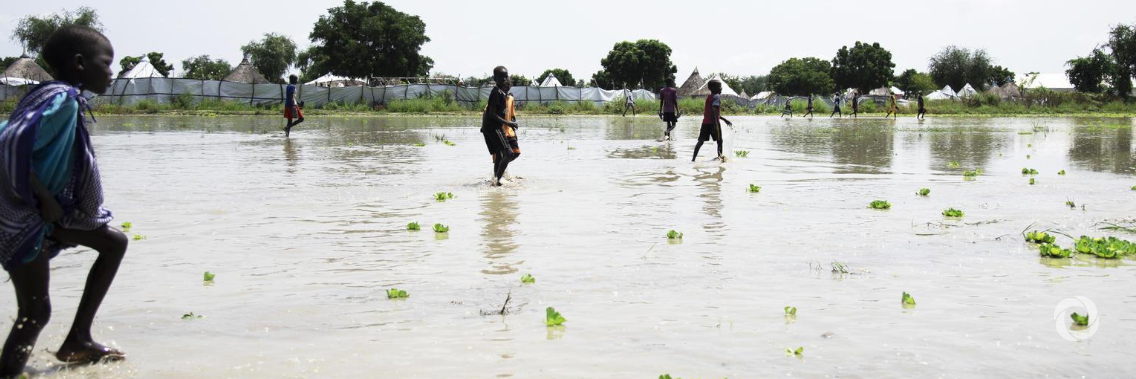The UN and its partners are supporting the Sudanese Government as it responds to recent severe flooding, which has killed 90 people and affected 380,000 others, the UN humanitarian affairs office, OCHA, said.
The flooding was triggered by heavy seasonal rains, mainly in neighboring Ethiopia, which caused the Nile River to rise to nearly 17.5 metres (roughly 57 feet) this past weekend: the highest level in 100 years, according to the authorities.
OCHA spokesperson Jens Laerke said the government has declared a state of emergency in Khartoum state alone, where more than 21,000 people have been affected by flooding since the end of July.
Across Sudan, some 37,000 homes were destroyed in the floods, forcing families to seek shelter with relatives and host communities. Another 39,000 houses have been damaged, along with 34 schools and nearly 2,700 health facilities.
“Access to clean water – critical in the middle of the COVID-19 pandemic – has also been affected”, said Mr. Laerke, speaking from Geneva. “Some 2,000 water sources are contaminated or non-functional, according to initial assessments.”
The flooding has also impacted an estimated 125,000 refugees and internally displaced persons (IDPs), the UN refugee agency, UNHCR added.
The UN and humanitarian partners are supporting national response with emergency shelter and household supplies, together with water, sanitation and hygiene assistance, food, health services, and vector control.
Mr. Laerke reported that they were able to respond quickly as supplies to meet the needs of 250,000 people had been pre-positioned before the rains started.
However, with stocks “being depleted rapidly”, OCHA is calling for wider support from the international community as a $1.6 billion humanitarian plan for Sudan is less than 44 percent funded.
Original source: UN News

